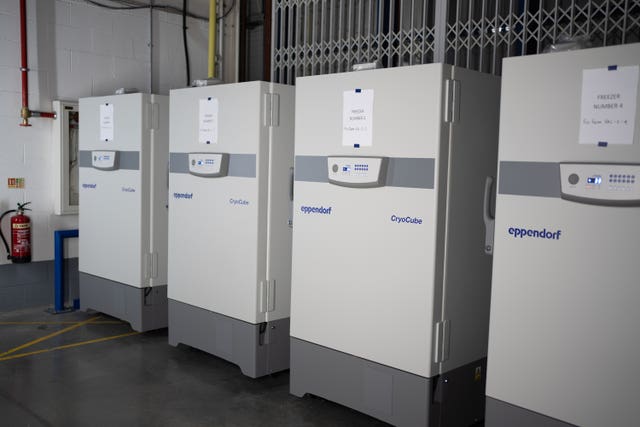Get ready to start vaccinating by December 14, GPs told
Health chiefs told doctors surgeries they must be able to administer all 975 doses in the vaccine packs with three-and-a-half days from mid-December.

GP surgeries have been told to be ready to start staffing Covid-19 vaccination centres by December 14.
In a letter sent out across England’s primary care networks, NHS England and NHS Improvement warned the “scale and complexity” of the immunisation programme would make it “one of the greatest challenges the NHS has ever faced”.
It was signed by Dr Nikita Kanani, medical director for primary care at NHS England and NHS Improvement, and Ed Waller, director of primary care at the same institutions.
“It is crucial we start to activate local vaccination services to allow priority patient cohorts to start accessing the vaccine,” it said.
The vaccination sites must be ready to administer 975 doses of the vaccine to priority patients within three-and-a-half days of delivery on December 14.
Speed is of the essence with the vaccine, as it is usually stored at -70C and will only remain stable at fridge temperatures of between 2C-8C for a limited period of time.

There are 975 doses in each of the Pfizer/BioNTech vaccine packs, which has posed a logistical problem of how they can be broken up and distributed to other key sites such as care homes.
The first to receive the vaccine in the centres will be those aged 80 and over, as long as their other risk factors “clinical or otherwise” had been taken into account.
NHS England and NHS Improvement said the number of vaccination sites in each clinical commissioning group (CCG) area will vary according to the number of residents it has who are over 80.
CCGs have been asked to consider inequalities and deprivation – some of the biggest Covid-19 risk factors – when choosing the sites for their vaccination centres.
Each centre will also be supplied with the “IT equipment necessary to deliver the programme and a fridge”, the letter said.
It added: “We will be writing to sites identified as part of wave 1 on Monday, setting out full details of vaccine supply dates, delivery of other consumables and equipment to the site, and the process for assuring readiness before delivery of vaccines.”
It said staff at the vaccination sites would be provided with training, and be “given full support to mobilise within the timescale”.
The staff at the first sites to open are due to get login details for the IT system set up to deliver the vaccination programme “as soon as possible”.
CCGs were told they must “offer all possible assistance” to the vaccine sites as the programme gets under way, including helping them with logistics and setting up clinical waste arrangements.
They were also warned that while urgent care must be provided by GPs even when the vaccine is being delivered, the vaccination programme must be their top priority.
It urged all primary care providers to work together to maximise uptake and minimise wastage.
The letter added that £150 million in funding is available to ensure there is the staff and resources for GPs to meet their usual obligations and deliver the vaccine programme.
It finished: “This is a hugely exciting moment for general practice and you who will be playing a key part in this important programme.”
Hospital hubs will be the first venues in England to start administering jabs, however, with vaccination ready to start from Tuesday, according to the chief executive of NHS Providers Chris Hopson.
Mr Hopson told BBC Breakfast: “We are identifying in hospitals how many over-80s do we have, either currently receiving treatment inside the hospital or people who are coming in for outpatient appointments.”
NHS England said a list of hospitals to start providing the jab will be issues over the weekend.
Meanwhile, the Medicines and Healthcare products Regulatory Agency (MHRA) said it has approved a solution to splitting vaccine packs and getting it into care homes.
Assemblers – a mixture of companies licensed to assemble packs and NHS hospitals with appropriate facilities – will break down the vaccines into smaller batches in special cold rooms at between 2C and 8C.
The process is extremely time sensitive, with assemblers having just 12 hours to thaw the vials, repack the medicines, label them and distribute them to the mobile teams delivering to care homes.
Despite elderly care home residents being the highest priority, they will not be first in the queue as manufacturers have to test and validate the assembly process and ensure all staff are thoroughly trained.
The MHRA said: “We have put in place arrangements to support delivery of the vaccine to top priority groups as safely and swiftly as possible.
“Regulatory approvals required to proceed with the splitting up of packs have been put in place.
“We are working with NHS and their assemblers to help support them to implement the processes and training they need to have in place to meet our conditions.”
Dr June Raine, chief executive of the MHRA, told the BBC on Friday that she estimated the vaccine would begin to be delivered to care homes “within the next two weeks”.





